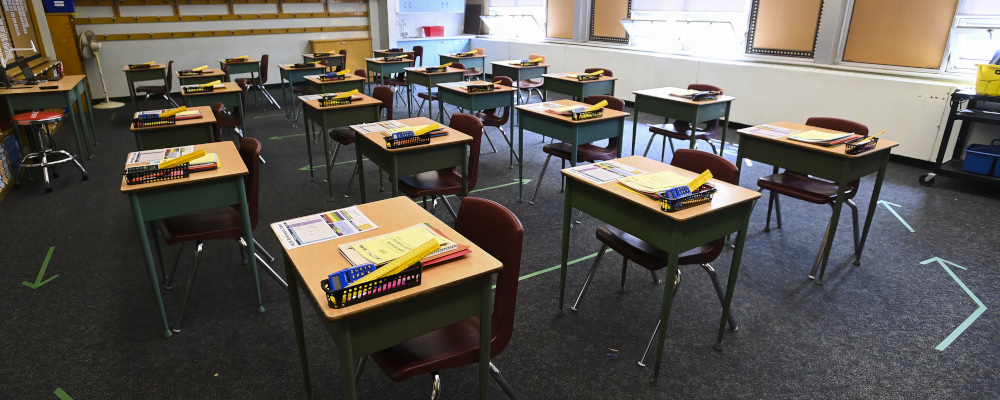A few weeks ago, an old acquaintance, now a successful academic at a major Canadian university, sent me a copy of her new book on the teaching of Canadian history in schools. It came with a note that read, “you’ll hate it!”
When a friend sends you their book it must be read or at least given some attention. I did, and she was right, I hated it.
I was going to keep my opinions to myself. Why risk offending a friend? I changed my mind. My acquaintance has garnered a reputation in her field among the progressive teachers of Canadian history. As citizens, we should know what our university departments of education are up to. I believe it is a service to the wider public debate that someone read her work and take up the challenge it represents about how modern educational theorists think and experience our country’s past.
The book starts off well enough noting how the traditional Canadian classroom has changed dramatically. Today 19 percent of Canadians identify as visible minorities. By 2031, 30 percent of Canadians will have a mother tongue other than English or French. With half the population in our major cities born elsewhere, more students will have no or little link or interest in Canada’s history.
The population of Aboriginal Canadians is also growing rapidly; they are younger and more urban. In short, the racial makeup of our classrooms is changing fast. To be relevant, high school history teachers are going to have a tougher job keeping students from falling asleep during lectures about the Battle on the Plains of Abraham or who shot D’Arcy McGee.
Now comes a new idea that says our teaching of history “has been notorious for promoting a one-dimensional understanding of national belonging far from the realities and stories of most young people today.” This old version of Canada, by which we mean Anglo and French history, “leaves out the violent history of colonialism, the state’s perpetration of continuous racial injustice, and the desire to make, and keep, Canada white.”
Now that’s a theme that should wake up the kid at the back of the class. This last point is rather odd given that Canada is accepting millions of visible minorities from around the world. But let’s not get distracted.
The book’s author wants to find a new “we” in Canada “to deconstruct the stories we have been told and to find new ways to put them back together again.” Here she suggests “meaningful learning”, which I take to mean that students are the subject in the classroom and teachers the objects. She wants to teach kids about a Canada that reflects their lived experience.
Forget about understanding how nations rise and fall, how wars start or end, or bothering to read great books
My only interest in high school history was doing as little studying as possible. The idea that I wanted history, or any subject, to reflect my ethnicity as a minority would have been absurd. I doubt that’s changed for most students regardless of their ethnicity or background.
Let’s continue. Rather than students learning from teachers, teachers learn from students, where students from various backgrounds can bring to the classroom their view of the world from their cultural experiences. The word “contextualized” is used liberally to the make the point. This will somehow make classrooms more relevant so all voices are heard.
This can best be done by introducing a good dose of Critical Race Theory, the idea that racism is endemic in Canada, that liberalism, objectivity, meritocracy actually support white supremacy, and that the “structured” stories we tell each other must be drowned out by “counter-stories” and the “experiential knowledge” of people of colour.
As the author says, “reading history through a critical race theory lens places the analysis of race and racism at the forefront of understanding society.” Just as the New York Times 1619 Project in the United States claims that slavery and racism are at the heart of the American experiment, Canada should follow and find our own colonial grievances.
It also demands that we stop seeing history solely through the eyes of white men. Once we apply the analysis of post- structuralism or post-modernism to the white man’s grand narrative of history — and that means patriarchy, white supremacy, and capitalism — the whole structure “is one quick breath away from collapse.”
What about multiculturalism? Do the theories of Jacques Derrida and Michel Foucault, names peppered throughout the book, have anything good to say on the subject? No hope here since multiculturalism doesn’t respect diversity and actually keeps us in the dark about how people are manipulated and exploited.
It’s not that history will be taught differently — it’s that there’s no need to teach it at all. When you have a Marxist key to study the past based on power, sexism, oppression and exploitation, all of Canada’s problems come clearly into view. Essays and assignments in this environment practically write themselves.
Forget about understanding how nations rise and fall, how wars start or end, or bothering to read great books like Paris 1919 by the Canadian historian Margaret McMillian. Or reinterpreting history as new historical information emerges. Forget about Gibbons and Rome, the Renaissance, the vast intricate histories of China, Europe or India or how Canada managed to stay free of the U.S. and create a country free and prosperous.
There was a time when the contagion of critical race studies infiltrating into our high schools looked remote. Now it has breached the walls and is spreading fast.
Of course schools should teach the role of racism and discrimination in our history, but CRT goes right past understanding and straight to indoctrination and social engineering. At its root, CRT rejects rationalism, individualism, capitalism, enlightenment values. Some even argue that property should be redistributed on a racial basis.
As with all good intentions, the law of unintended consequences emerge. In a recent study where so-called non-stigmatized groups are “educated” about the discrimination against stigmatized groups, the result leads to more paternalistic attitudes by the non-stigmatized group, not less. The reason is that the stigmatized group is seen as more helpless and less competent. If ever there was a more damaging result for all racialized groups, this is it.
Maybe Arthur Schopenhauer was right that kids shouldn’t be introduced to thinking until the age of 16 and before that they best be occupied by learning arithmetic, math, grammar and memorizing historic and geographic facts. Asking them to reason about anything else is a waste of time since they know so little of life in any event.
In any event, parents in the U.S. are starting to push back. What will be the reaction here and how far will it go? So far it looks like my old friend’s side is winning. That has to change, and change quickly.
Recommended for You

‘How do we educate people for life’: How to connect Canada’s education system to the needs of a fast-changing economy

Foreign-born mothers gave birth to nearly half of Ontario and B.C.’s babies in 2024: Statistics Canada

The solution is a ‘mission-driven research agenda’: Five takeaways on how Canada’s post-secondaries can help boost the economy and increase competitiveness

Canada’s economy needs systems that deliver





Comments (0)